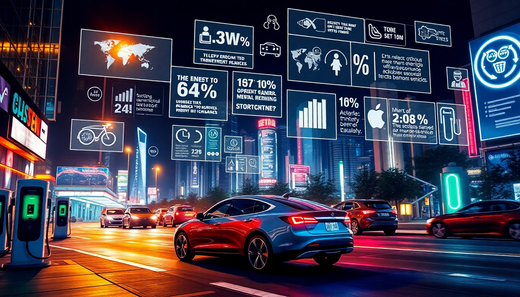
Navigating the Future: Exploring the Pros and Cons of Electric Vehicles
Share
In the ever-evolving landscape of the automotive industry, the rise of electric vehicles (EVs) has been a game-changer, promising a more sustainable and eco-friendly future. As the world grapples with the pressing issue of climate change, the shift towards electric mobility has become a crucial step in reducing our carbon footprint. However, like any technological advancement, EVs come with their own set of advantages and disadvantages that must be carefully considered.
The Advantages of Electric Vehicles
One of the primary advantages of EVs is their environmental impact. By eliminating the need for traditional internal combustion engines, electric cars produce zero direct emissions, making them a cleaner and more sustainable mode of transportation. This not only helps to reduce greenhouse gas emissions but also contributes to improved air quality in urban areas, leading to better public health outcomes.
Another significant advantage of EVs is their energy efficiency. Electric motors are inherently more efficient than their gasoline-powered counterparts, converting a larger percentage of the stored energy into motion. This translates to lower fuel costs and reduced reliance on fossil fuels, ultimately saving drivers money in the long run.
Furthermore, the driving experience of electric vehicles is often praised for its smooth and quiet operation. The instant torque provided by electric motors delivers a responsive and enjoyable driving experience, making EVs a popular choice for those seeking a more engaging and comfortable ride.
The Disadvantages of Electric Vehicles
While the advantages of electric vehicles are compelling, there are also some drawbacks that must be considered. One of the most significant challenges is the limited range of many EV models, which can be a concern for drivers who regularly undertake long-distance journeys. Although advancements in battery technology are steadily improving range, this limitation can still be a deterrent for some consumers.
Another potential drawback is the cost of electric vehicles. Due to the advanced technology and the relatively high cost of battery production, EVs often carry a higher price tag than their gasoline-powered counterparts. This can be a barrier for some consumers, especially those with limited budgets.
The availability and accessibility of charging infrastructure is another concern for EV owners. While the number of public charging stations is steadily increasing, the lack of a comprehensive and reliable charging network in some regions can make it challenging for drivers to confidently undertake longer trips.
Conclusion
As the world continues to embrace the transition towards sustainable mobility, the debate surrounding the advantages and disadvantages of electric vehicles will undoubtedly continue. While EVs offer significant environmental and economic benefits, the challenges of limited range, high upfront costs, and charging infrastructure must be addressed to ensure widespread adoption.
Ultimately, the decision to choose an electric vehicle over a traditional gasoline-powered car will depend on individual needs, preferences, and the specific circumstances of each driver. As technology continues to evolve and infrastructure improves, the future of electric vehicles looks increasingly promising, paving the way for a more sustainable and eco-friendly transportation landscape.
